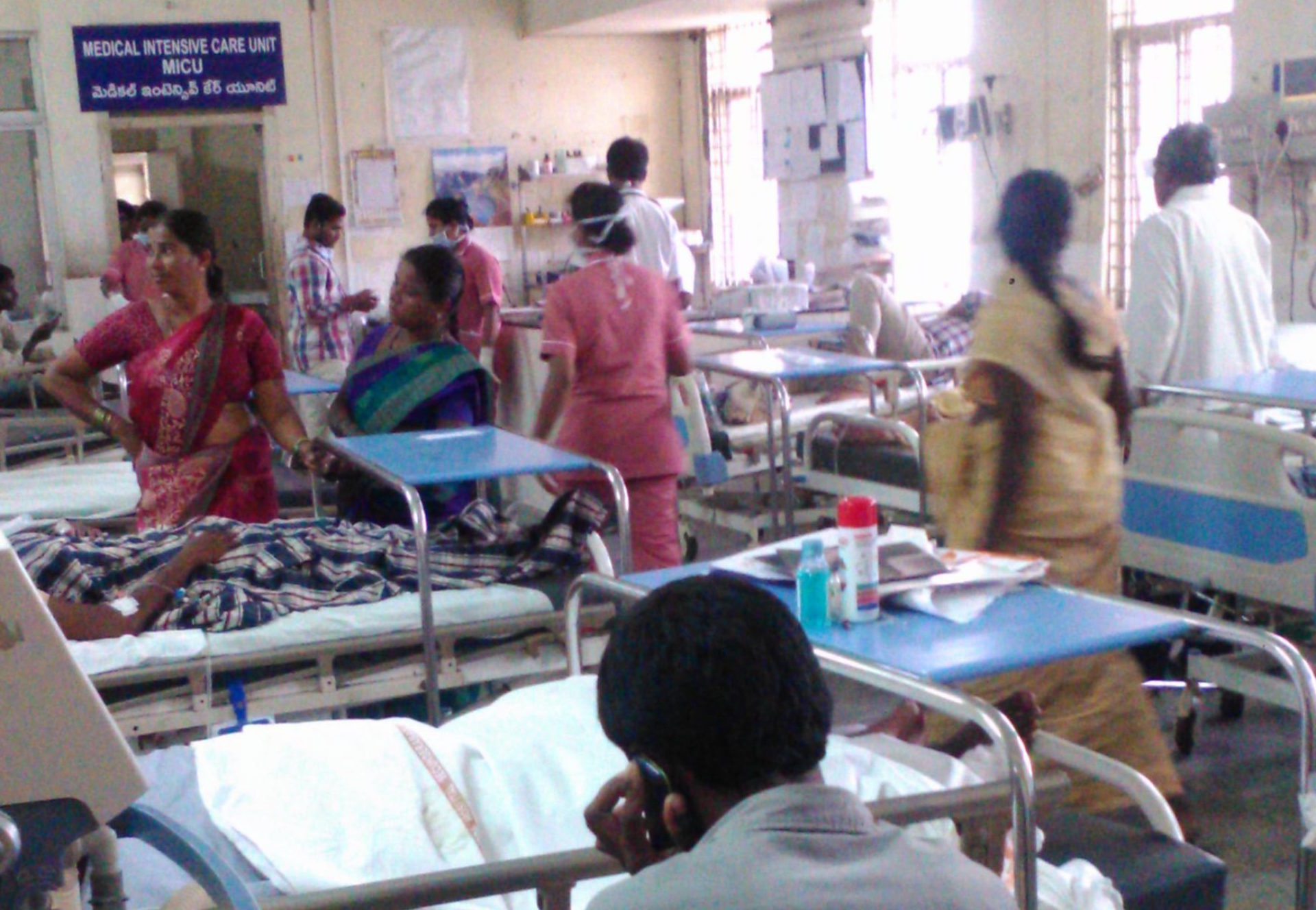The Global Superbug Crisis
Share
The Bureau of Investigative Journalism will investigate how the growth of drug-resistant infections can threaten strong and resilient health systems, reporting from some of the world’s poorest and wealthiest countries.
- €129,500 Budget in Euros
- 2018 Final release date
- 2 Round winner
- 1 Location
- 12 Durations in months

Superbugs are drug-resistant infections and have been called one of the biggest threats to global health and development. The overuse of antibiotics has led to the spread of drug-resistance, and could affect millions of people around the world, especially in developing countries.
Antimicrobial resistance has been described as the greatest public health crisis facing the world. Before penicillin was discovered people died from infections in unthinkable ways. For example, one man scratched himself on a rose thorn while gardening, and later died of septic shock. Antimicrobials not only treat infections but can also prevent them during surgery. This allows doctors to carry out treatments we now consider as standard in the west: Caesarean sections, hip replacements, chemotherapy for cancer. Without them these procedures might become too risky to carry out.
Currently 700,000 people die of resistant infections every year - and this is thought to be a low estimate - according to a report by ex UK government minister and Goldman Sachs economist Lord Jim O’Neill. His report estimated that by 2050 this death toll will rise to 10 million people. That’s more people than are currently dying of cancer. Most of these deaths are likely to be in Asia and Africa, according to the O’Neill report – although the problem will affect people on every continent.
A lot has been written about antibiotic resistance problem from a US and European perspective, including a series of stories by the Bureau which appeared in the national newspapers in the UK. For example one revealed that superbugs are now killing more people than breast cancer.
As part of this new project, funded by the European Journalism Centre grant, we want to look at how antimicrobial resistance is affecting the poorest countries in the world, whose health systems and wider economies are likely to be most affected. Though some are making progress in meeting the Sustainable Development Goals, antimicrobial resistance threatens to to undermine work done in areas like health and poverty alleviation, and will test countries’ governance and accountability.
For example, Malawi has made great progress in reducing deaths of children under five years old. But the number of newborn babies dying has remained stubbornly stable. Doctors say as resistance increases more babies will die from infections for which first-choice antibiotic don’t work. Because of the limited supply of drugs in the country, experts fear rising resistance means the country will struggle to meet targets around further reducing child and baby deaths.
To report on this problem we will need to look at the underlying issues, including those concerning water, sanitation and hygiene, which explain how people are becoming infected in the first place; health systems; agriculture; and pharmaceuticals.
Project links
-
The Bureau of Investigave Journalism
- website
- (EN)
Publications
-
The Bureau of Investigative Journalism
- A game of chicken: how Indian poultry farming is creating global superbugs
- EN
-
The Lancet
- A colistin crisis in India
- EN
-
Poultry World
- Indian poultry farming and global superbugs
- EN
-
Global Citizen
- ‘Last Resort’ Antibiotic Is Being Used on Chicken Farms in India
- EN
-
Economic Times
- ‘Last frontier’ breaches on drug’s rooster dose
- EN
-
Democratic Underground
- Oh, Fucking GREAT IDEA! Indian Farmers Using "Last Line Of Defence" Antibiotic To Raise Chickens
- EN
-
The Bureau of Investigative Journalism
- Big Pharma fails to disclose antibiotic waste leaked from factories
- EN
-
The Ecologist
- Big Pharma fails to disclose antibiotic waste leaked from factories
- EN
-
The Bureau of Investigative Journalism
- Superbugs more common in people who have travelled to Asia or Middle East
- EN
-
The Telegraph
- Tourism spreading antibiotic resistant superbugs new study reveals
- EN
-
The Bureau of Investigative Journalism
- We stand by our story: They were marketing critical antibiotics as growth promoters to farmers
- EN
-
The Bureau of Investigative Journalism
- “We need to stop talking: we need to start acting”: The Global Superbug Crisis event in Westminster
- EN
-
The Bureau of Investigative Journalism
- IMF should make tackling superbugs a priority, says top expert
- EN
-
The Daily Telegraph
- “Wake up call”: Nearly untreatable infections in England's hospitals
- EN
-
The Bureau of Investigative Journalism
- Indian poultry firm Venky's in new furore
- EN
-
The Bureau of Investigative Journalism
- The story behind the mom, the chicken and the superbug threat
- EN
-
The Bureau of Investigative Journalism
- Indian court restricts antibiotic sales after Bureau story
- EN
-
The Bureau of Investigative Journalism
- Half of countries still using critically important antibiotics in agriculture
- EN
-
The Bureau of Investigative Journalism
- Womb loss in Malawi: an unfolding tragedy
- EN
-
The Bureau of Investigative Journalism
- Scourge of superbugs killing Malawi's babies
- EN
-
Malawi Times Group
- Scourge of superbugs killing Malawi's babies
- EN
-
British Medical Journal
- The scourge of avoidable neonatal mortality in Malawi
- EN
-
The Bureau of Investigative Journalism
- Yemen: a deadly mixture of drug resistance and war
- EN
-
New York Times
- Will the next superbug come from Yemen?
- EN
-
The Bureau of Investigative Journalism
- "Global shame": Children hit hardest by tuberculosis crisis
- EN
-
The Independent
- How India is battling to control the rise of drug resistant TB in children
- EN
-
The Bureau of Investigative Journalism
- "A curse from the gods": India's tuberculosis crisis
- EN
-
The Bureau of Investigative Journalism
- "Another Daesh": Superbugs plague Afghan hospitals
- EN
-
The Bureau of Investigative Journalism
- World's biggest animal drugs company sells antibiotics to fatten livestock in India despite superbug risk
- EN
-
BMJ's Veterinary Record journal
- Zoetis and its antibiotics for growth in India
- EN
-
The Hindu
- Antibiotics to grow farm animals raise superbug risk
- EN
-
The Telegraph
- Figures reveal emergence of pan-drug-resistant infections
- EN
-
The Bureau of Investigative Journalism
- Babies hit hardest by India's antibiotic resistance crisis
- EN
-
The Telegraph
- India's sepsis babies: the struggle to save newborns from superbugs
- EN
-
The Bureau of Investigative Journalism
- Elanco adverts "disgusting" says chief medical officer
- EN
-
El Pais
- Poor maternal care leads to hysterectomies, antibiotic resistance
- EN, Spanish
